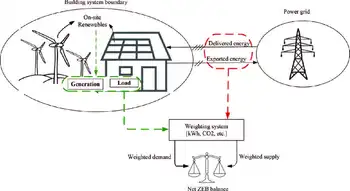Regulators place conditions on Duke solar program
The N.C. Utilities Commission has approved the proposed $50 million program, which would generate about 10 megawatts of solar energy from panels the utility would own atop some customersÂ’ homes or businesses.
But spokeswoman Paige Sheehan says the company must determine the impact of the conditions the commission has imposed before it sets a start date for the program.
The key restriction included in the commissionÂ’s approval is a limitation on the amount of money Duke can recover under the stateÂ’s renewable-energy portfolio standards. That law sets minimum requirements for renewable-energy production in the state. But it also caps the amount of money a utility is required to spend on renewable sources of energy. Lawmakers added that provision to the 2007 legislation to protect utility customers from high power bills resulting from a utilityÂ’s investment in renewable power. Such energy is typically more expensive than power generated from traditional sources.
The commissionÂ’s Public Staff and others had questioned whether DukeÂ’s program could push the company to that cost limit long before it reached the annual goals for generating renewable energy.
Duke concedes the rooftop program will be more expensive than other solar alternatives. For instance, Duke expects to get more power at a lower cost from its plan to buy energy for resale from a solar farm Sun Edison is to build in Davidson County by 2011. But Duke contends there are sound public-policy reasons for accepting the more expensive program.
Sheehan says Duke remains committed to the rooftop solar initiative. And she says the delay to review the impact of the commissionÂ’s conditions will be short.
Related News

Tariffs on Chinese Electric Vehicles
CANADA - Canada, a rising star in critical EV battery minerals, finds itself at a crossroads. The question: should they follow the US and EU and impose tariffs on Chinese electric vehicles (EVs)?
The Allure of Protectionism
Proponents see tariffs as a shield for Canada's auto industry, a vital job creator. They argue that cheaper Chinese EVs, potentially boosted by government subsidies, threaten Canadian manufacturers. Tariffs, they believe, would level the playing field.
Consumer Concerns and Environmental Impact
Opponents fear tariffs will translate to higher prices, deterring Canadians from buying EVs. This could slow down Canada's transition to cleaner transportation,…




